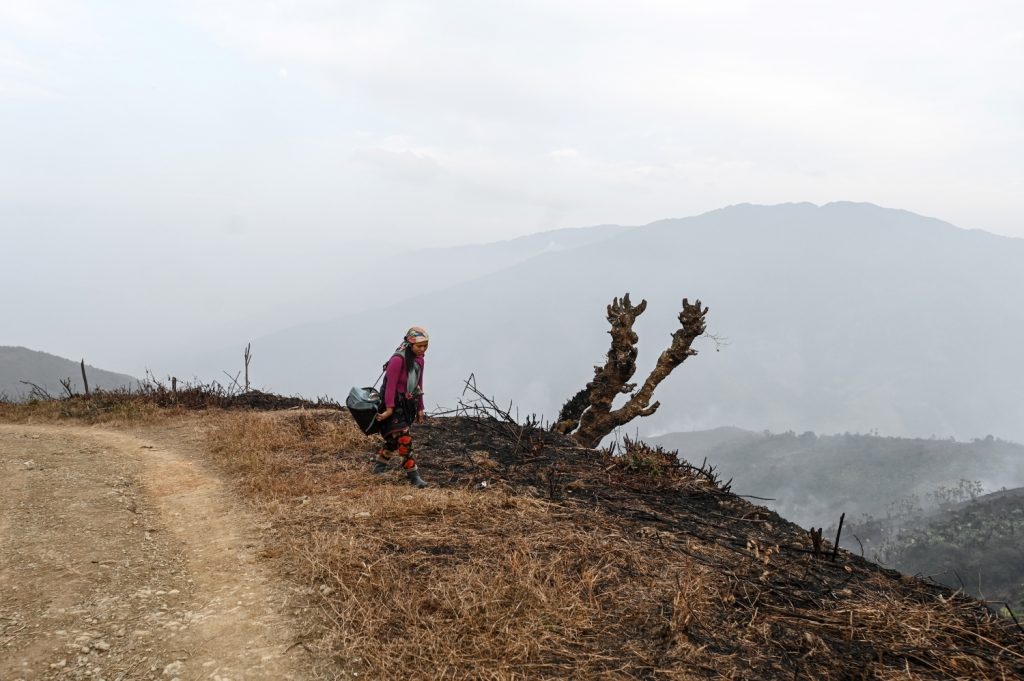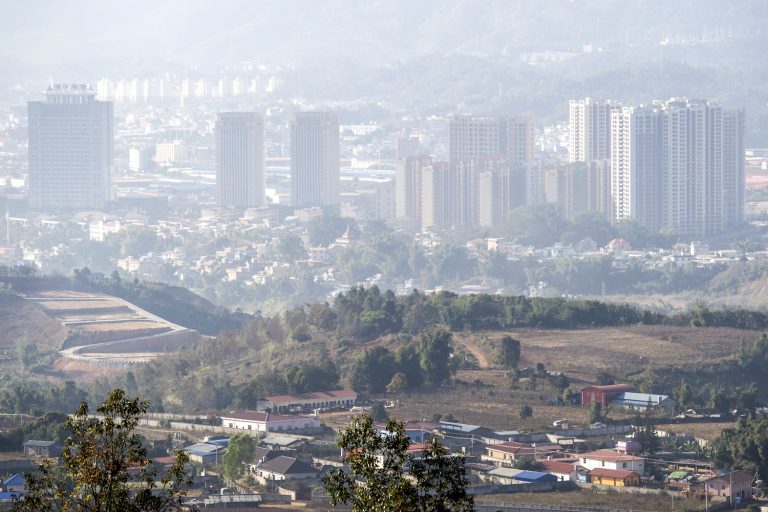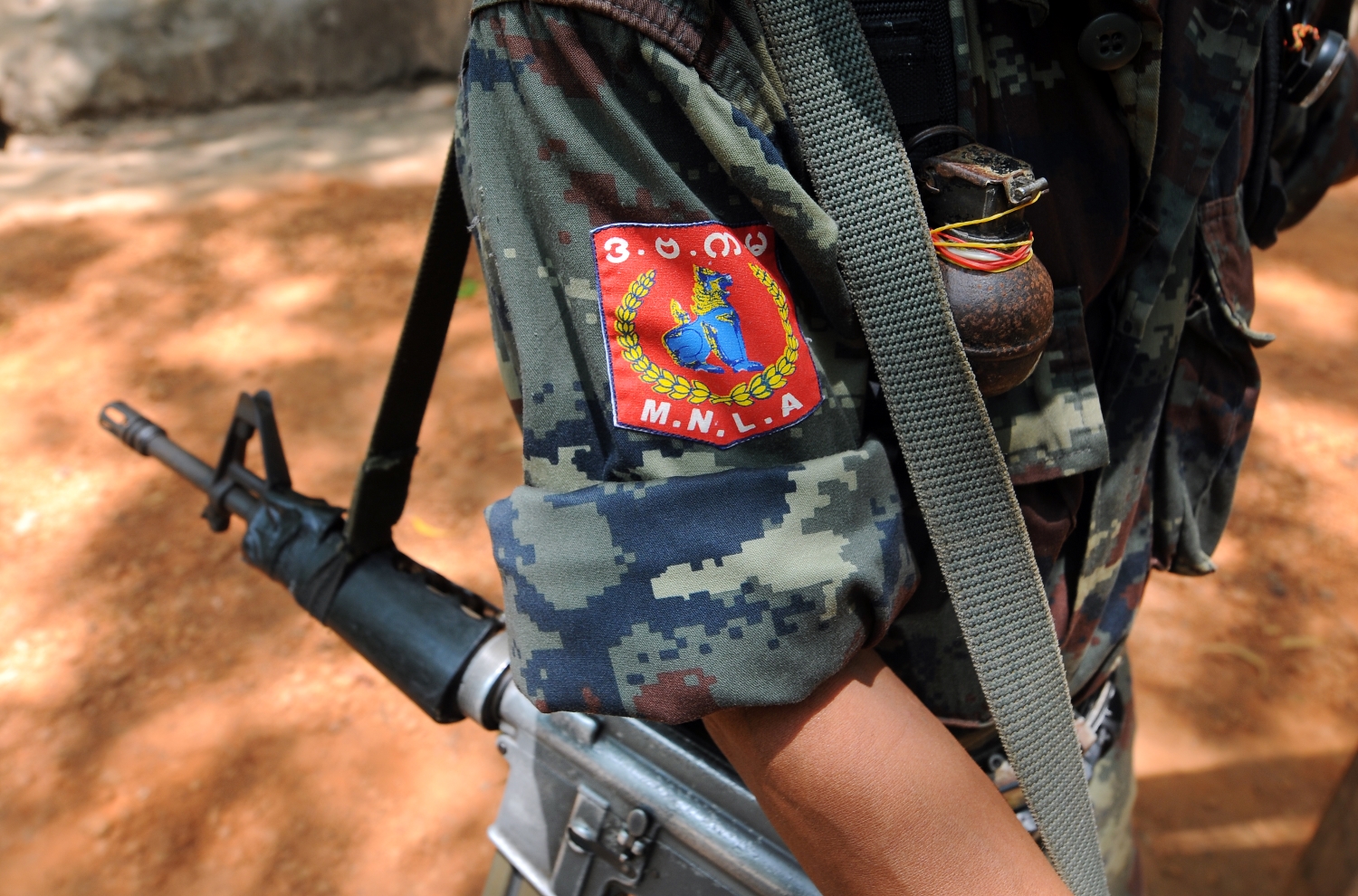The ruling National League for Democracy should stop putting profit over pro-poor land reform, and international donors must ensure that support for reform protects ethnic groups and supports peace.
By ZUNETTA HERBERT | FRONTIER
Researcher Callum Furness is correct to argue in the September 30 Frontier article “Land reform: A vote-winner for the NLD” that the National League for Democracy has an opportunity to correct many wrongs by creating a new land law to implement the policies it has adopted since 2016.
These policies, which include the National Land Use Policy, Agricultural Development Strategy, National Environmental Policy, and National Biodiversity Strategy and Action Plan, commit the government to a pro-poor, pro-peace and pro-biodiversity protection route for fundamental land reform in Myanmar. However, as Furness rightly points out, laws amended by the NLD while in office have all pointed in a different direction.
This is not limited to the Vacant Fallow and Virgin Land Management Law to which Furness refers. The amendments to the Farmland Law and Forest Law as well as the replacement to the Land Acquisition Law criminalise farmers and informal land users while having no specific penalties for companies that do not meet their obligations. However, in the workplan for drafting the National Land Law there is no mention of the need to review the existing laws, but rather to “harmonise” them in an umbrella law.
Moreover, rather than a fully consultative process, the National Land Law drafting process is totally centralised, with no role for state and regional committees that should have been established according to the notification that created the central committee. So-called civil society and farmers’ representatives in the various drafting sub-groups are largely retired government staff and hand-picked civil society organisations. In the sub-group for customary land, there are no ethnic armed organisations or civil society groups involved in the Nationwide Ceasefire Agreement discussions.
At the same time, the Ministry of Ethnic Affairs seems to be pushing through state and regional ethnic rights protection departments for a definition of customary land that is based on agricultural practices and individual title, which is totally at odds with ethnic groups’ desire for a recognition of their common right to manage land using customary processes. Customary land recognition needs to also include recognition of a plural legal system, in which customary systems for resolving land disputes are not criminalised.
The NLD is indeed likely to lose seats in ethnic areas where the VFV law is being enforced and farmers criminalised. However, land reform matters more than just the election. The NLD needs to re-think its assumptions about land. For instance, it appears to assume that giving land to companies rather than communities or smallholder farmers makes the land more “productive” and will benefit the country’s GDP growth.
However, companies do not even purchase the land under the VFV land law; they do not pay taxes until five years after the land is gifted to them, and then only at a rate of K10,000 per acre. Moreover, research shows that often companies do not plant the land in full and offer little employment for the people whose sole income came from farming the land. Rather, companies, often closely connected to local administrators or using bribery, claim the land in order to gain from the trees they can cut down, and in the expectation that they can sell their lease for a profit when land prices rise.
It is particularly concerning that the draft Myanmar Economic Recovery and Reform Plan, released last week to donors seeking to support Myanmar’s post-pandemic recovery, cites the ”continuing importance of agriculture” but ignores the importance of land tenure for peace and for ethnic smallholder farmers’ livelihoods, and their right to property and shelter. It instead pushes for all ”vacant lands” to be mapped for inclusion in the Myanmar Project Bank and a planned national Land Bank, so as to attract capital investment to commercial agriculture and aquaculture.
This is a development model that has not only shown weak economic returns but has also worsened countries’ vulnerability to climate change and loss of biodiversity. It also creates increased inequality; and in a country where ethnic conflict often hinges on claims to land and natural resources, it can only lead to more conflict.
Continuing to put profit over peace and pro-poor land reform will not only damage the NLD’s election chances. It will also lead to the unbridled exploitation of the poorest people in Myanmar, heighten tensions between communities and, at a time of a global pandemic and climate crisis, will lead to Myanmar suffering food insecurity for the first time since colonial rule.
The NLD has a duty to listen to its voters. International donors also have a duty to ensure that assistance to Myanmar, including backing for its post-COVID-19 recovery plan, actively supports land reform while protecting the rights of ethnic groups and farmers, and helping the country achieve peace. To this end, donors should press for reform of the current National Land Law drafting process and the implementation of a moratorium on giving away land in ethnic areas until a new law is written.







